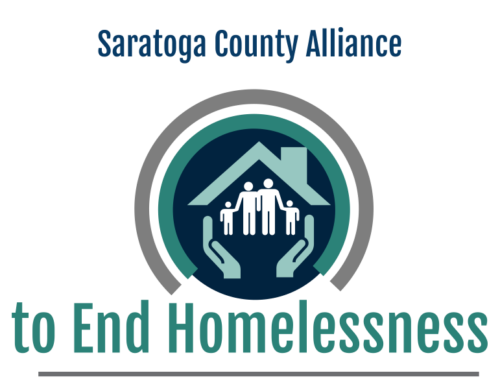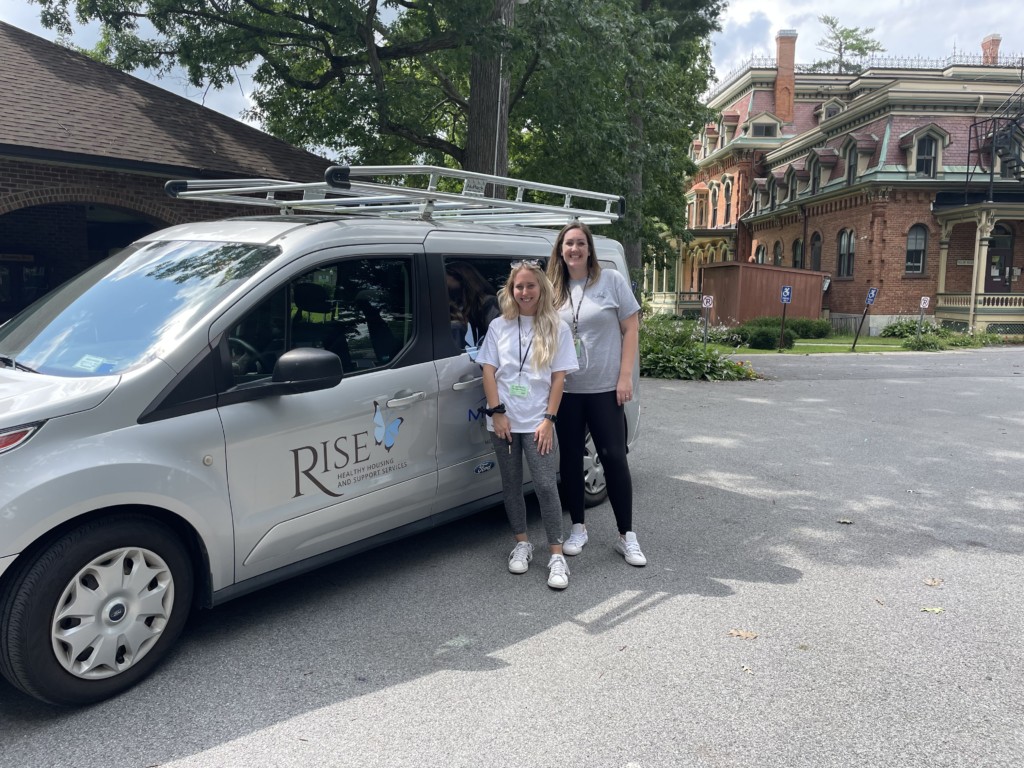
The Saratoga County Alliance to End Homelessness contributed this article that was posted in the Saratoga Today, First 5 Months of New City Homeless Court Proves Successful
On October 22, 2020, City Court Judge, Francine Vero, presided over the first session of the Homeless Court in Saratoga Springs. Since then, about 90% of individuals agreeing to participate in the Homeless Court have been connected to care management and community services and the court has seen a significant drop in repeat offenses.

The Homeless Court was designed in collaboration with the Mayor’s Office, Judge Vero, and RISE Housing and Support Services (formerly Transitional Services Association). However, it was Judge Vero who first identified the problem and thought through the solution, “Individuals experiencing homelessness were accumulating multiple dockets and often failing to appear in court. This population is particularly challenged in getting to court due to a lack of structure and resources. I decided the court needed to implement a new approach to address these issues and connect individuals experiencing homelessness to the services they need. I met with stakeholders, we discussed the issues, and the homeless court was created.”
On the two court dates set aside each month, Homeless Court Coordinators, Samantha Macio and Victoria Furfaro, head out in a van donated by the Mackey Auto Group to offer transportation to people who are scheduled for court. Because a person who is homeless does not have a permanent address or often does not have a phone, the court cannot send appearance notices nor can the court call to remind them of the date. Sam and Victoria make it their mission to locate individuals and help them to make their appearance in court.
Samantha and Victoria are experienced Care Managers at RISE Housing and Support Services. They work with participants outside of the courtroom several days a week through community outreach. It is an opportunity to develop a trusting relationship with people experiencing homelessness who might not have faith in the system. They provide a single and familiar point of contact for those appearing before the Homeless Court. On any given day, a person who is homeless may be hungry, need clothing, or need shelter. By doing outreach to the encampments, they learn what people are struggling with. They are then better able to assist the Saratoga County Assistant District Attorneys, Lyn A. Murphy and Samuel V. Maxwell, and Saratoga County Assistant Public Defender, Joseph W. Hammer in deciding a dignified approach to working with a homeless person.
To date, the Homeless Court Coordination program together with community partners have connected nearly 30 individuals to stable housing, substance use treatment, and mental health services. Community partnerships have been pivotal to the Homeless Court’s success, so when circumstances allow, individuals can take part in court-mandated services and programs instead of going to jail or being fined.
Healing Springs Recovery Centers offer peer-to-peer recovery coaching for individuals wanting to work on the development and implementation of a recovery wellness plan and welcomes all recovering people and families seeking recovery from the effects of addictions. The Salvation Army assists with care management as well as hot meals and groceries. CAPTAIN Community Human Services connects staff directly to youth ages 13-21 years. RISE Housing and Support Services helps people living with mental health, substance use, and other life challenges to remain safe and healthy in the community. AHI Health Home Care Management ensures all caregivers involved with a person so they can focus on their client’s needs. Shelters of Saratoga has programs including emergency shelter, case management, and drop-in centers.
In February, the American Bar Association’s Commission on Homelessness and Poverty met with Judge Vero and the Homeless Court Coordinators with praise for the establishment of a Homeless Court in Saratoga Springs. The Commission is committed to educating members of the Bar Association as well as the public about homelessness and poverty and how the legal community and advocates can assist those in need.
This dignified and research-based approach to working with people experiencing homelessness improves the quality of life within our community, and results in administrative cost benefits by decongesting court dockets and reducing the amount of time the police department spends responding to calls and arrests.
RISE Housing and Support Services is proud to be a part of this innovative court program.
